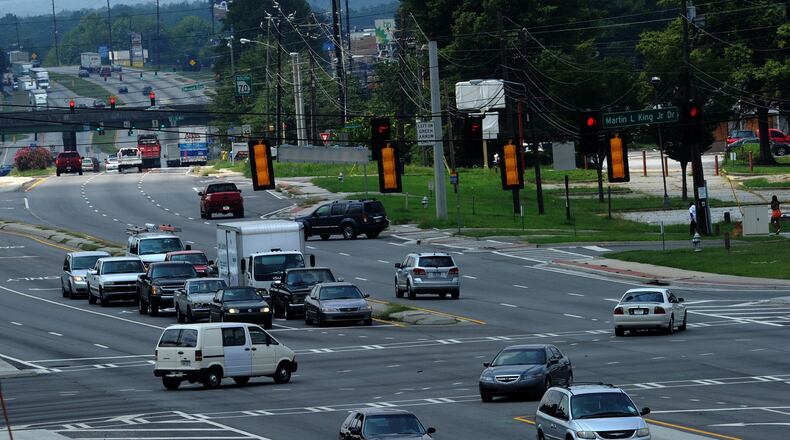Fulton County residents already agreed in November to allow annexations in the Fulton Industrial District, the last unincorporated part of the county and an area that had been off limits to annexation for 40 years.
So a unanimous Georgia Supreme Court ruling Monday that affirms Atlanta's 2017 annexation of a piece of land it owns in the district — calling the 1979 constitutional amendment unconstitutional — doesn't change the fact that both Atlanta and the city of South Fulton can woo landowners to join their respective cities.
Alone, it's a small issue. But as part of the larger annexation fight Atlanta has initiated in south Fulton County and DeKalb County, the decision could have implications on where tax dollars go.
Where the ruling does make a difference is in the school systems: Whether Atlanta Public Schools or Fulton County Schools get the tax revenue from the district as it is annexed into cities.
Susan Romanick, a spokeswoman for the Fulton County Schools, said there was no material impact on the district from the single parcel. But in a Fulton County delegation meeting last month, representatives from the Fulton County Schools said they could lose more than $10 million in property tax money if Atlanta annexes the 7.5 square miles of mostly industrial land that runs along Fulton Industrial Boulevard, south of Six Flags on the Fulton side of the Chattahoochee River.
That's only if Atlanta Public Schools' boundaries expand, too. The Atlanta City Council voted not to expand APS' boundaries with the annexation that was approved by the Supreme Court this week, though APS has filed suit against the city to ensure that its boundaries change as Atlanta's do.
The district was not opposed to the city’s expansion, APS spokesman Ian Smith said in a statement, but it did not want to be left behind. Smith said the city “was abandoning APS by not including APS in its growth and the expansion of its tax base” for the first time in 146 years. APS filed suit challenging that, and the state Supreme Court is scheduled to hear arguments later this year about whether the city’s expansion must include the school district.
The case also has implications for Atlanta's expansion in DeKalb County. There, the school district is fighting with APS over which school system will serve 744 acres around Emory University that were annexed in 2017. The area only has about 10 students, but represents $2 million in tax revenue. For the time being, an injunction is keeping the students and the money in the DeKalb County Schools, but in legal filings last year, DeKalb school attorneys said they thought the case on Fulton Industrial was being used by APS as an "attempted end-run" to stop the injunction.
In a statement, a district spokesperson said the court supported DeKalb’s position.
“… A school district annexation process can and should be considered separate and distinct from a municipal annexation process,” the statement said. “We are encouraged to see our position reinforced by this decision.”
The Fulton Industrial District has long been an object of desire for the city of Atlanta, and in a statement, spokesperson Michael Smith said, “The City looks forward to further discussion with FID stakeholders regarding annexation in light of the Supreme Court’s ruling.”
At the same time, Rep. Roger Bruce, D-South Fulton, has introduced legislation for the third time that would put most of the unincorporated area into the city of South Fulton. Bruce said he thinks that bill will go through; it has passed the House and was referred to the Senate.
Twice, the legislation that would put the unincorporated area into South Fulton was approved, only to be vetoed by then-Gov. Nathan Deal. Bruce said he has talked to Gov. Brian Kemp's staff to try to forestall the same result.
“Hopefully, that will translate into him signing the bill,” he said.
Bruce’s latest push would leave one piece of Fulton County unincorporated — the county’s Charlie Brown Field, a general aviation airport that Fulton County’s chairman, Robb Pitts, said he wants to maintain without another city’s oversight.
About the Author
Keep Reading
The Latest
Featured



